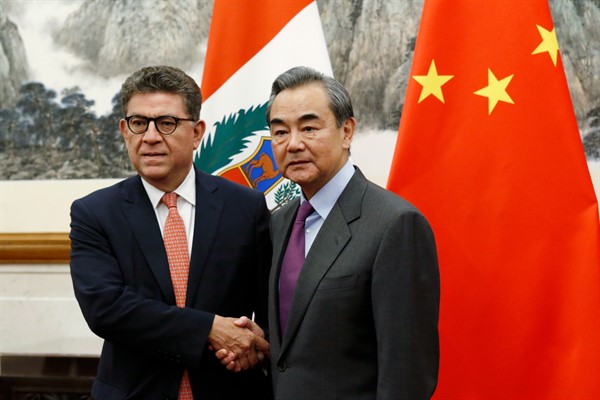The coronavirus pandemic has yet to peak across Latin America and the Caribbean, but China is already maneuvering to try and capitalize on the crisis and bolster its position and influence in the region. The heated blame game between Washington and Beijing over the coronavirus’s origins will eventually fade from the headlines, and Chinese leaders are quietly working to ensure that when it does, the strategic ground will have shifted in their favor. At the heart of these efforts is a campaign for ideological supremacy, to show the moral equivalence and even the supposed superiority of the Chinese communist system over traditional Western democracy.
The key for Beijing is producing positive results by assisting people in desperate need, both in China itself and across Latin America and the Caribbean. At the same time, China is highlighting failures by the United States and its allies, seeking to undermine Washington’s claim as the preferred partner for Latin American countries and casting doubt on American primacy. It is a potent mix, building on years of patient Chinese investment in the region across a full spectrum of activities, from infrastructure and technology to media and people-to-people exchanges. At stake are the hearts and minds of over 650 million people across the Western Hemisphere.
By late March, when China had apparently contained its own coronavirus outbreak, it began offering testing kits, ventilators, masks and other equipment to Latin American and Caribbean countries. The foreign minister of Mexico, which has traditionally had tense economic ties with China, seeing it as a rival, tweeted his enthusiastic thanks. Argentina’s president, Alberto Fernandez, held a photo op with China’s ambassador and exchanged letters with Chinese leader Xi Jinping.

